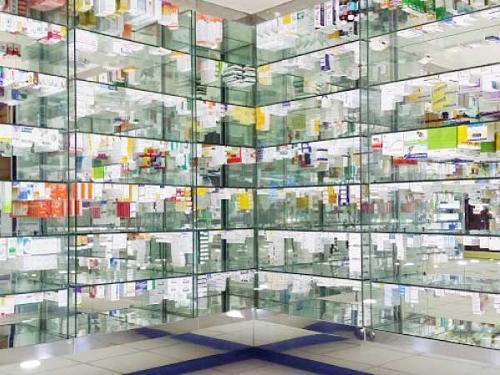
Recycling medication
It seems many of the Kingdom’s pharmacies allow customers to return prescription medicines regardless of the dangers involved in doing so.
A medicine that is taken outside the pharmacy should not be returned under any circumstances because if it is exposed to the sun or other elements, its chemical composition may be altered and the medicine itself will become ineffective.
Al-Riyadh daily met several pharmacists and experts to ask them about the practice of reselling returned medicines.
While many pharmacists declined to talk about or comment on the issue, several said there are pharmacies that allow patients to return prescription medicines.
A citizen, who requested anonymity, said the practice can even be found at some government-run pharmacies.
“The Ministry of Health should crack down on this and run continuous inspection visits to monitor the activities of pharmacies. In my opinion, the ministry should require pharmacies in both private and public sectors to display a sign clearly stating that sold medicines cannot be returned or replaced,” he said.
Ali Qassim, a pharmacist, said customers often become confrontational when told they cannot return a medicine once dispensed, so many pharmacists reluctantly let them do so.
In some cases, especially when the sold medicine can endure a 30 degree Celsius temperature, Qassim said he accepts returns. In other cases, where the medicine needs to be kept in the refrigerator, he refuses because it can have a dangerous effect on a patient’s condition.
“We only allow a patient to return the medicine after asking him in what condition he stored the medicine. If the package of the medicine has been damaged, we won’t allow the return. If two days have passed since the medicine was sold, we will not take it back. There should be some mechanisms in place to regulate the return policy,” he added.
Ahmad Ibrahim, also a pharmacist, said some medicines, if exposed to sun for a long time, can turn into poisonous substances. The degree of danger increases in medications taken to treat chronic conditions such as diabetes and high blood pressure.
“If a diabetic patient takes a medicine that has been exposed to too much sun, he might become hypoglycemic and die. The same holds true for patients with heart problems. Under current conditions, if a pharmacist refuses to take back a medicine that was sold two hours ago, he might get in trouble and the patient might insult him and accuse him of fraud,” Ibrahim noted.
He said the majority of the general public is unaware of the dangers of medicines that have been exposed to too much heat or humidity.
“Most people think that as long as the expiry date has not passed, the medicine is safe to be consumed, which is a widely-held misconception. They do not know that storing the medicine in imperfect conditions can destroy its effectiveness,” he added.
According to Ibrahim, pharmacists should be protected against any physical or verbal abuse they may be subjected to if they refuse the return of a sold medicine.
“How can pharmacists perform their duties with honesty and integrity if they feel threatened by some people when they refuse to allow the return of a medicine?”
Awareness
Salih Bawazeer, a professor of clinical pharmacy, said pharmacists should not accept any returns of medicines and suggested they explain customers the changes that happen to their composition if exposed to imperfect conditions.
Abdulrahman Al-Sultan, executive director of media and public awareness at the Saudi Food and Drug Authority (SFDA), said a pharmacist who allows the return of sold medicines has engaged in improper practice.
“How can the pharmacist ensure that the returned medicine had been stored in safe conditions? He cannot guarantee this,” he said.
Mastoor Al-Selami, a lawyer, said reselling a returned medicine is a form of fraud, which is punishable by the law and the pharmacist can be imprisoned for a period not exceeding three years and fined a maximum SR50,000, or both. If a pharmacy sells used or damaged medicines, it should be reported to the police and the pharmacist involved will be referred to the Bureau of Investigation and Public Prosecution.

























